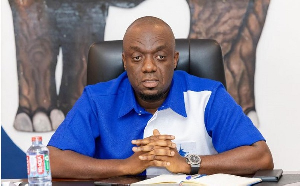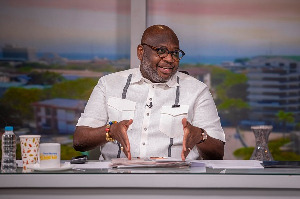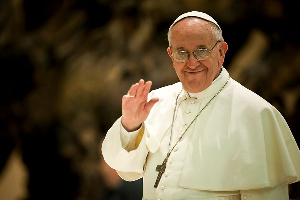... Is Dr Tony Aidoo in Contempt of Court? Think Again: If Astute Legal Practitioners are at fault lines, how just, then, could we trouble a Vociferous Sociologist and Politician?
The OmanbaPa Research Group
MEMO
In the Republic v Mensah-Bonsu and Others; Ex Parte Attorney-General [1995-96] 1 GLR 377 (SC), the Supreme Court of Ghana held among others that “freedom of expression was essential to the achievement and maintenance of a democratic society. Accordingly, the press might criticise in matters of public interest. [But] That right was however not absolute but subject to the limitation that it did not violate the integrity of the court or present a threat to judicial authority. [Thus] even though trenchant criticism of a judgment was permitted, scurrilous abuse of a judge by the imputation of unfairness and impartiality, as in the instant case, was not and would thus constitute contempt of court. Accordingly, in the instant case, the defence of fair criticism would not ensure to the benefit of the respondents.” It is from this legal premise, that our hearts bled for Dr Tony Aidoo- the National Democratic Congress’ politician, for being quoted to have tagged the Ghanaian Judiciary, among others, in a news paper report, as “rotten to the core”. But could we justly hang Dr Aidoo alone for “blasphemously”, bringing the sanctity and the honour of the Ghanaian judiciary to ridicule? FACTS It is true that everywhere around the world, the judiciary enjoys an invaluable measure of independence and immunity from the society in which it serves. This fact could be traced to English legal history or assumption that “the Sovereign King does no wrong”. Professor Kwabena Quansah, accordingly, comments that thus, Judges, as King’s delegates for dispensing justice, “ought not to be drawn into question for and supposed corruption, for this tends to the slander of the justice of the King. Accordingly, Article 127(3) of the 1992 Constitution provides that a Justice of the Superior Court [Supreme Court, Court of Appeal and the High Court], or any person exercising judicial power, shall not be liable to any action or suit for any act or omission by him in the exercise of the [said awesome] judicial power.
This is supported by s. 113 of Courts Act 1993 (Act 459) as amended by the Courts (Amendment) Act, 2004, which captures among others, non-liability of a judge of Circuit Court, a Chairman of a Tribunal and a panel members of Regional, Circuit and Community Tribunals for any matter or thing done by them in the performance of their judicial functions. But had judges ever been beyond reproach in the administration of justices? Never, on this earth! As human beings, they could be innocently, fallible, in their reasoning, judgements, decisions and rulings. And if Oliver Wendell-Holmes were to be believed, a judge could also be bias on the premise of his/her political/ideological beliefs or socio-economic background? COMMENTARY AND ANALYSIS I need counsel in getting my head around as to whether or not the Supreme Court of Ghana has the power to act both as a police, prosecutor and a judge in an allege contempt case. Article 19(11) of the 1992 Constitution of Ghana states that no person shall be convicted of a criminal offence unless the offence is defined and penalty for it is prescribed in a written law. Indeed sub-clause (12) of the same article provides that this shall not prevent a Superior Court from punishing a person for contempt of itself notwithstanding that the act or omission constituting the contempt is not defined in a written law and the penalty is not so prescribed.
So it seems to us that the Supreme Court Judges in the on-going Presidential Election Petition hearing, invoked this power when on 25th day of June 2013, the Court ordered Sammy Awuku- a Deputy-Communication Director of the New Patriotic Party, to remain on his feet while the Court, was on recess for the determination of his alleged contempt “voire dire” hearing. In the words of Professor Quansah(2011), contempt of court serves the primary function of protecting the integrity of court proceedings. “At common law, it is recognised that judges have an inherent power to exercise authority and control over judicial proceedings and punish conduct which brings the judicial process into disrepute.” But I think, respectfully, that the Court’s procedure on Sammy Awuku’s confinement was hastily wrong.
Yes, the UK Crown Prosecution Service (Guide to Contempt) observes that once a contempt of court breach has come to light, it is the responsibility of the court to summon the alleged contemner. However, it is advised that because it is undesirable that the court should then act as prosecutor, and judge, it is appropriate for the CPS , and in our case, the Attorney-General, to assist by instructing an advocate to place the circumstances of the matter before the court and question the alleged contemner in case of any dispute. Yes, it is submitted that such cases will be very rare in the Kingdom of Great Britain but in the event of such an occurrence, steps should be taken to instruct the original advocate at the hearing. The responsibility for providing the CPS with the relevant transcripts and post trial documents lies with the Ministry of Justice. The established legal rule here is that we cannot be a judge in our cause.
What, then, if at a hearing, a counsel at the bar shows an open-distrust for a Supreme Court’s registry or to his/her learned opposing counsels in an open court? According to Professor Emmanuel Kwabena Quansah, the practical danger to the continuance of judicial independence, is either to take it for granted and not strive to maintain it or the Judiciary itself compromises its independence by bending to the will of vested interests be it the executive or otherwise. Fortunately, the Judiciary, Quansah states, seems to be alive to the latter danger as exemplified by the dictum of Atuguba JSC in his dissenting opinion in Tsatsu Tsikata (No. 1) v Attorney-General (No. 1) in which the Law Lord said: “The judiciary itself cannot waive its independence under articles 125(1) and 127(1) of the 1992 Constitution by acquiescing in the name of the President [? J. A. Kufuor] or other authority or person, rather than the Republic.” On 24 June 2013, Atuguba JSC hoisted the powers and the independence of the Judiciary in the administration justice in the Republic. Reading the unanimous decision of the 9-member court in relations to commentaries on the presidential election petition hearing, he said: “We have seen the Kenyan precedent in this context and much as we are concerned not to exercise our undoubted powers as a court of law with iron fist, we cannot allow the emergence of over mighty subjects in this country. However, in order to show that we mean well for this country with regard to the exercise of our awesome powers we have decided to stop short of invoking our powers of contempt and invoke in the alternative, our power to control the attendance of our proceedings as a public court by members of the public...We think that the exclusion of Mr. Sammy Awuku from attending the proceedings of this court for the rest of the duration of this case should suffice for a start in this direction. That is our ruling.” Awuku had criticised the SC for being “selective and hypocritical” in its reference to Daily Guide’s court coverage.
In the words of Professor Quansah, there are two types of contempt- namely civil and criminal and that contempt can be either direct, in cases where it occurs in the presence of the judge and disrupts the court proceedings (in facie curiae) or indirect, where it occurs outside the immediate presence of the judge (ex facie curiae). Civil contempt occurs when a person refuses to obey a court order or breaches an undertaking given to the court either directly or by necessary implication shows disrespect for the judge, or disrupts judicial proceeding. Per Prof Quansah, criminal contempt may take a variety of forms but they all have one thing in common: they are designed to interfere with the due administration and dispensation of justice either in an ongoing case or generally. The well-known punishment imposed by the court for the said court contempt is performance of undertaking, a fine, imprisonment or both.
But within the European Union, any restriction on reporting [commentary] could be [mis]construed as contrary to the general rule in favour of open justice, and the fair and accurate reporting of public court proceedings. Article 10 of the European Convention on Human Rights (the right to freedom of expression- the freedom both to impart and to receive information, regardless of frontiers), is a qualified right, and interference of it in the form of restrictions may be appropriate and necessary where for example, it relates to protecting the identity of defendants appearing in the youth court; sexual nature; or the rights of others to a fair trial (Art 6 ECHR), or to privacy (Art. 8 ECHR). For most journalists, contempt of court and defamation suits had been their greatest perils in relation to balancing the law with the public interest matters. For example, JusticeGhana Group could be in contempt if it intentionally or journalistically, irresponsibly, carries a story about the Pink Sheets auditing at Supreme Court’s Registry with the aim of subverting a fair trial of or ridiculing KPMG firm?
Judicial Notice
Following the Supreme Court’s decision in the case of New Patriotic Party v Attorney-General [1993-94] 2 GLR 35 (SC)) the first respondent, a legal practitioner and a columnist of the Free Press newspaper obtained through the Deputy Judicial Secretary a copy of the judgment (exhibit MB1) delivered by Justice Abban- one of the panel members in that case. On receipt of the certified transcript of that judgement, the first respondent: Mensah-Bonsu, wrote to Justice Abban, contending that a statement praising the coup d’état of 24 February 1966 which had been published in the Daily Graphic newspaper of 24 February 1970 and which in the words of the first respondent, Justice Abban, had attributed to Former Prime Minister- Dr Kofi Abrefa Busia, at page 28 of his judgment, was the editorial opinion- ”Graphic View”- of the newspaper and requested the justice to offer an explanation for the said mistake. In support of his claim he attached a photocopy of the publication to his letter. A copy of that letter was also sent to the Chief Justice and then published a copy in his column in the Free Press of 13 May 1994. In that issue- captioned: “Justice Abban is a Liar”- the Free Press, castigated Justice Abban, among others, of displaying political chicanery and bamboozlement of Ghanaians by his conduct. Sometime later, the registrar of the Supreme Court (L) on the directions of the Chief Justice wrote to the first respondent and informed him that from the certified true copy of the judgment of Justice Abban (exhibit CTC), the justice had at page 28 attributed the statement in question to the “Graphic View” and that he enclosed a copy of the page in the letter. In an article titled: “Judicial Chicanery”, Mensah-Bonsu- the first respondent, alleged inter alia, in the Free Press Issue of 20 May 1994, that the Law Lord, had by his conduct, indulged in “judicial chicanery”, “plain falsehood”, and had used the bench for “politics of undisguised partisan nature” and “done violence to the truth.”
In his reply to the registrar of the SC, the first respondent alleged that Justice Abban had altered the text of what he had read in court to meet his criticism. After attempts to have the issue resolved through the Media Commission failed, lodged a complaint against the three respondents with the police. After the police had taken statements from them, the Attorney-General brought a motion for an order to attach the first and second respondents for contempt of court and for the third respondent to pay a heavy fine and the costs of the proceedings. In granting the application, the Supreme Court held, inter alia that, “[a]lthough under CI 13 the registrar was defined to include the Judicial Secretary, on the evidence; the Deputy Judicial Secretary had never been in possession of the judgments of the court. Accordingly, the registrar of the Supreme Court was the person entitled to proper custody of the judgments and the one to whom applications for copies had to be made. And besides, since under section 162 of the Evidence Decree, 1972 (NRCD 323) a certified copy of any document was presumed to be genuine- that the certified copy of the judgment of Justice Kobbina Abban (exhibit CTC), was the only correct, admissible and acceptable judgment. On the evidence, however, and contrary to the provisions of s.70 (2) of the Courts Act, 1993 (Act 459), Mensah-Bonsu, was not the only one who had not been affected by the judgment of the Supreme Court but had also not made any written or oral application to the court for a copy of the judgment of Justice Abban nor had he been exempted from paying any costs therefore. The section 70(2) of the Courts Act 1993 provided that: “If a person affected by a judgement or a court order desires to have a copy of the judgement, order, deposition or other part of the record, he shall on application for the copy be furnished with it if he pays its cost except where the court for some special reason thinks fit to furnish it free of charge.” For these reasons, the Supreme Court found that the conduct of the first respondent- Mensah-Bonsus, with respect to obtaining the judgment of Justice Kobbina Abban and publishing it, was a contempt of court since it was an interference with the rules and processes of the Court.
Contempt of Court v. Public Interest
In the Kingdom of Great Britain in which the Republic of Ghana owes much of its jurisprudence, the concept of contempt was established at common law as “an act or omission calculated to interfere with the administration of justice”. The Crown Prosecution Service (CPS- Guide to Contempt of Court) states at its website that the common law is still the starting point for determining what constitutes contempt, and case law has established the powers of courts to deal with contempt. Section 41 of the Criminal Justice Act 1925 creates contempt to take any photograph, make or attempt to make any portrait or sketch of a justice or a witness in, or a party to, any proceedings before the court, either in the courtroom or its precincts. So on the face of justice and fairness, it is incumbent on the court to promptly evaluate that calculated bid- direct/indirect, to perverse or interfere with the course of justice. Per Lord Reid in a newspaper contempt case of A-G v. Times Newspapers Ltd. [1974] AC 273, 294 H.L, “The law on this subject [contempt of court] is and must be founded entirely on public policy. It is not there to protect the private rights of parties to a litigation or prosecution. It is there to prevent interference with the administration of justice and it should in my judgment be limited to what is reasonably necessary for that purpose. Public policy generally requires a balancing of interests which may conflict. Freedom of speech should not be limited to any greater extent than is necessary, but it cannot be allowed where there would be real prejudice to the administration of justice.” Madam Justice Shameem at the Attorney-General’s Conference (December 2004), shed light on the Fiji Judiciary in a celebrated contempt case of Syed Muktar Shah v. Elizabeth Rice, where an Attorney-General’s Officer, in his personal (not his professional) capacity, persuaded a 15-year-old girl rape victim, to change her evidence in the case against the accused- who was her father. The Fiji Times broke loose in search of the truth about how a file listed before Dr. Ilangasinghe, was mysteriously, transferred to Shah, some minutes before hearing:
“The most common form of criminal contempt is the common law jurisdiction of scandalising the court. Fiji has a colourful, not always respectable history of prosecutions for scandalising the court. I say, not always respectable, because past cases show us how the contempt powers of a court can sometimes be used to stifle legitimate submissions by counsel, and forthright and critical comments on judicial conduct, by the media.”
The Plea
In conclusion, we mention in passing that the law of contempt of court, illustrate above, has, as its sole purpose- the maintenance of the authority and the dignity of the courts. But the integrity of its invocation and application ought to serve the public’s right and interest to know.
Researched and Compiled By Asante Fordjour for The OmanbaPa Research Group JusticeGhana
Opinions of Tuesday, 2 July 2013
Columnist: Fordjour, Asante














